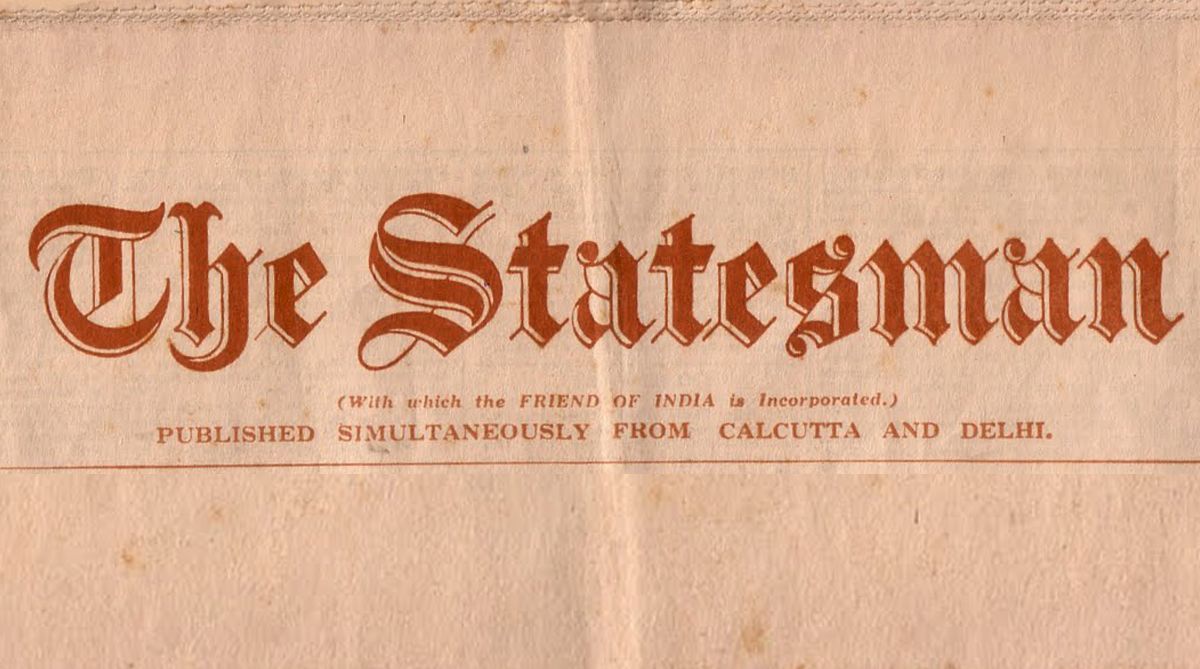A New Day, A New Dawn
There is a surprise for the readers. A special Poila Boishakh gift from none other than West Bengal chief minister Mamata Banerjee. Who has written a piece for this special edition.
On this day a century ago, these were some of the news items The Statesman readers got to read about India and the world.

OCCASIONAL NOTE
Mr. Asquith has described the impending General Election as a calamity and a blunder. From today’s telegrams it would seem that the troops – both men and officers – to whom balloting papers have been sent agree with him. They have up to the present shown little inclination to vote and in some cases the balloting papers served out have been used for lighting fires. It is, indeed, little short of an insult to ask soldiers who have been four years absent from home to vote for or against a party or coalition of whose policy on questions which for so long have passed out of the region of their lives they know, and can know, little or nothing. The attitude of these men may prove to be a very serious factor in the national life. They constitute from one-half to five-eighths of all the male voters. If they form the unfortunate conclusion that the nation’s politics are nothing but a vulgar scramble to resume office on the part of those in power the consequences, sooner or later, may be the reverse of those for which Mr. Lloyd George looks. The right time for a General Election would have been eighteen months later, when the repatriated troops would have obtained a clearer idea of the social and economic problems which now confront the nation and formed at first hand a rough estimate of the ability and sincerity of those appealing to them for their confidence.
FALL IN RANGOON RICE MARKET
Advertisement
The rice market has fallen here owing to the rumoured intentions of Mr. Gubbay, the Foodstuffs Commissioner. The prices today of November rice are Rs 388 to Rs 395 new crop. Speculative dealings are Rs 325 to Rs 337-8 February to April. Paddy is quoted at Rs 150 to Rs 155 for rail and Rs 160 to Rs 167 for boat. Last evening Mr. Gubbay issued the following:- The question of the disposal of the exportable surplus of the rice crop of 1919 has been considered in the light of the requirements for Burma rice from India and foreign countries. It is anticipated that tonnage will be regularly available to carry away that portion of the surplus which will be allotted for the requirements of India. In regard to the requirements both of India and other countries it is intended that such quantities as may be permitted to be shipped to a particular destination shall also be subject to control in the matter of price.
RECRUITING STAR FOR INDIANS
His Majesty the King-Emperor has approved of the grant of a recruiting badge to selected Indian officers and soldiers now serving or who have served during the war, including re-employed Indian military pensioners, as a reward for recruiting work since the commencement of the war. The badge consists of a five-pointed bronze star enclosing a gilt plaque bearing an effigy of His Majesty and surrounded by a wreath inscribed “for recruiting work during the war.” The badge will be worn only with uniform when attending a durbar, but may be worn at all times with plain clothes. It will be suspended by a gilt ring to a dark green ribbon 27 inches in length which will be worn round the neck. The conferment of the badge will not carry with it any title, alphabetical letters or privilege other than that of wearing it. Awards of badges to others than those who have served with units during the war and those now serving will be made by the civil authorities under orders to be issued by the Local Government and Administrations.
HOLLAND TRUE TO HER QUEEN
A telegram from Rotterdam says: Today, which was fixed for the revolution promised by Troelstra, was marked by the appearance of the latter at the Socialist Congress here. He declared that the week had yielded important results. He had hitherto absented himself from Congress in order not to endanger this harvest. He admitted that he had miscalculated the relative strengths of the parties in the country, but claimed that the revolutionary fire had been fanned by his action. The power of the Government and of the middle classes was still great but they must recognise the strength of labour. The Congress passed a resolution to continue the agitation to secure the Government’s acceptance of the labour demands.
KING REVIEWS THE GRAND FLEET
The King and Queen today lunched with British, French and American admirals on Sir David Beatty’s flagship and witnessed the departure of fast destroyers forming the vanguard of about two hundred fighting ships to whom the German war vessels will surrender tomorrow. The King reviewed the entire Grand Fleet and was received everywhere with tremendous enthusiasm.
Advertisement